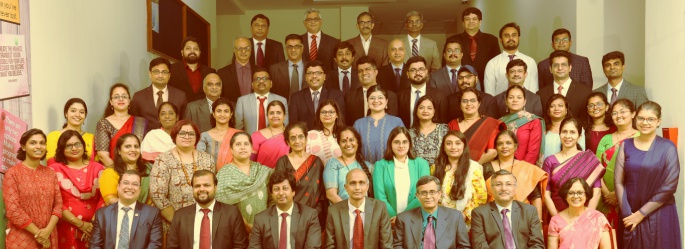Engineering seats in India hit 10-year low, while management seats continue to grow
Date: 21.09.2021
Pageview: 170,692
Spokesperson: Prof. Madhu Veeraraghavan
The total number of engineering seats in India has fallen to the lowest tally in the last 10 years in 2021-22, data from the All India Council for Technical Education (AICTE) has revealed. At the same time, seats in management courses have witnessed an uptick in recent years, according to data accessed by ThePrint.
A total of 23.6 lakh seats were available in engineering courses across the country for 2021-22, according to the AICTE, the regulatory authority for technical institutions in the country. This is the lowest tally since 2012-13, when 26.9 lakh seats were available. The peak of the last 10 years came in 2014-15, when 31.8 lakh seats were offered by engineering colleges. Since then, however, the number of seats has been declining.
Management courses, meanwhile, have witnessed a steady rise in seats since 2019-20 with the highest number in five years — 4.04 lakh — on offer in the year 2021-22.
A perusal of data on management courses for the past 10 years shows that seats in these courses witnessed a rise from 2012-13 to 2014-15 but declined after that. In 2017-18, the total number of seats spiked to 3.94 lakh, but then declined to 3.74 lakh in 2018-19 and further to 3.73 in 2019-20. However, the number has been on the rise ever since.
An analysis of data from 2017-18 to 2020-21 also revealed that more seats have been left vacant in engineering colleges in the last five years, compared to management courses.
The percentage of vacant seats in management institutions for this period was between 34 and 37. In comparison, vacant seats in engineering colleges ranged from 45 to 48 per cent in the past five years.
Decrease in demand for engineering education
According to experts in the field of management, the two trends highlighted by the data are correlated, and are indicative of the fact that the decrease in engineering education demand has given way to an increase in demand for management.
“The problem is with the unemployability of engineers… Engineers are not getting jobs after graduating, so they are going for an MBA. The civil, mechanical and other engineering graduates do not end up getting a job in their core area, hence they think they want to be in the corporate side,” said Prof. Madhu Veeraraghavan, director of the TA Pai Management Institute in Manipal.
“There is a definite correlation between engineering seats falling and management seats seeing an uptick,” Veeraraghavan told ThePrint.
However, he noted that there is a problem with the skillsets of both engineering and management graduates.
“The latest Skill India reports show that only over 40 per cent MBA graduates are employable, and the numbers for engineering graduates are similar. Education institutes in India need to upgrade their curriculum and understand what the market needs,” said Veeraraghavan.
The India Skills Report 2021 highlighted that students pursuing Bachelor of Technology (B.Tech.) and Bachelor of Engineering (B.E.) were found to be the most employable at 46.82 per cent. MBA students, meanwhile, showed 46.59 per cent employability.
The report, which looks at the employability of Indian graduates in various domains, was prepared by Wheebox, an online talent assessment platform, along with AICTE and industry players like Confederation of Indian Industries (CII).
Management offers better paid jobs
According to Dr Akhil Shahani, managing director of the Thadomal Shahani Centre for Management, the multiple engineering and management institutions in the country have churned out unemployable graduates.
“Over the last decade, many education entrepreneurs opened engineering and management institutions across India as they felt they could attract many students and charge high fees due to increased demand for technical and management skills from industry. However, many of these new colleges provided substandard education and churned out unemployable graduates,” Shahani told ThePrint.
He added: “With the drop in hiring demand from the IT industry for these lower quality engineering graduates, these new engineering colleges could not attract sufficient numbers of students and had to close down.
Shahani noted: “Companies are offering better paid jobs to management graduates and are willing to train them even after they get hired. Hence demand from students for management degrees is still strong and more regional management colleges are sprouting up.”
Experts also indicated that the decrease in the number of engineering seats could be because conventional engineering disciplines are seeing lower demand due to decreasing job prospects.
“The general trend in the past has been to complete an engineering degree and then go on to do a management programme at the postgraduate level, and this I believe will continue to some extent,” said Dr Christopher Abraham, CEO and Head, Dubai Campus, S.P. Jain School of Global Management.




